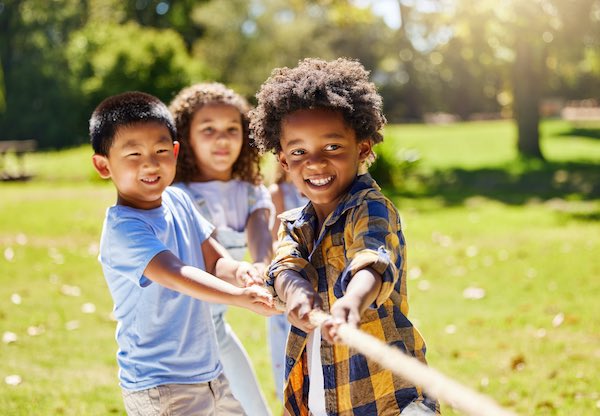A Growing Crisis: Treating Childhood Obesity
- Category: Health
- Published: Thursday, 15 February 2024 12:22
- Joanne Wallenstein
 Childhood obesity is an alarming global concern that has been steadily worsening over the past few decades. The Centers for Disease Control and Prevention estimates 1 in 5 children and adolescents are affected by this condition. What’s more, the COVID-19 pandemic exacerbated the issue. “Post-COVID, obesity is especially on the rise in 6- to 11-year-olds and teens,” says Dr. Debra Etelson, a Pediatrician with White Plains Hospital Physician Associates in Somers.
Childhood obesity is an alarming global concern that has been steadily worsening over the past few decades. The Centers for Disease Control and Prevention estimates 1 in 5 children and adolescents are affected by this condition. What’s more, the COVID-19 pandemic exacerbated the issue. “Post-COVID, obesity is especially on the rise in 6- to 11-year-olds and teens,” says Dr. Debra Etelson, a Pediatrician with White Plains Hospital Physician Associates in Somers.
There are many reasons driving this increase. First, the pandemic disrupted organized sports and unstructured activities, including outdoor playtime for kids, compounding an already prevalent problem. Among her patients, Dr. Etelson says, “I noticed a decrease in outdoor play even before the pandemic.” But, during the COVID lockdown, she says, “More kids were sitting in bed with their laptops. Eating habits also changed; intake of processed foods increased. Some of this was from boredom, or a lack of distraction from other things going on.”
Mental health also suffered, she adds, which can lead to serious physical health consequences. “More depression and anxiety from isolation can also translate to more obesity,” Dr. Etelson says.
This trend also led to a rise in diseases associated with obesity, such as hypertension and kidney disease, says Dr. Frederick Kaskel, Vice Chair, Affiliate and Network Relations, The Children’s Hospital at Montefiore, and Professor of Pediatrics, Albert Einstein College of Medicine. Dr. Kaskel, a Pediatric Nephrologist who also sees patients at Montefiore’s Pediatric Specialty Center on Davis Avenue in White Plains, says this “common ground” of obesity, Type 2 diabetes, and hypertension tends to run in families. “And there are stressors — socioeconomic, geographic, demographic, and genetic” — that may exacerbate these problems, he explains.
“Many kids live in an environment where they can’t even go out to walk. They have only bad food choices and food anxiety. It becomes a vicious cycle.” But it is not just a problem for children in less-affluent areas, he says: “It’s across the board. We are in an epidemic. This is a global health issue.”
The consequences of a lack of physical activity are lifelong. “If children are severely obese by age 6, there is an even higher chance they will be obese in adulthood. Early childhood is the time to develop good habits,” says Dr. Etelson, who has conducted research on childhood obesity and has raised two children with Type 1 diabetes. While this is different from Type 2, she understands the challenges and the importance of maintaining a healthy diet and exercise routine.
To get young children on the path to wellness, it is important that their caregivers and families be part of healthy habit formation, including ensuring they get enough physical activity and eat healthy meals and snacks. (This includes grandparents, who might help with caregiving but offer too much junk food!)
“We need early identification and community awareness,” Dr. Kaskel says. “The earlier programs are set up, the better [the outcome] is going to be.” At the Pediatric Specialty Center, Dr. Kaskel’s team screens patients for risk and then works with other specialists in Endocrinology, Cardiology, General Pediatrics, and other specialties to enact lifestyle changes — which Dr. Kaskel admits are “very easy to talk about, but very hard to do.”
In her practice, Dr. Etelson strives to develop a “therapeutic alliance with parents and caregivers,” to manage weight in children. “I like to dig in deep and find out what’s realistic” in terms of lifestyle changes, she says. “We make it a collaborative approach and see what will work with the family and other caregivers.”
Scare tactics don’t work. “It’s about setting realistic goals,” she explains. “We are not expecting dramatic changes, but we want to see progress.” She also stresses the importance of setting up and maintaining follow-up appointments. “I want families to have accountability, as this is the only way to address challenges and increase health outcomes,” she says. Dr. Debra Etelson is a board-certified pediatrician at White Plains Hospital Physician Associates in Somers. To make an appointment, call 914-849-7075.
Dr. Debra Etelson is a board-certified pediatrician at White Plains Hospital Physician Associates in Somers. To make an appointment, call 914-849-7075.
Health Matters: The original version of this article was published in Health Matters, a White Plains Hospital publication.






